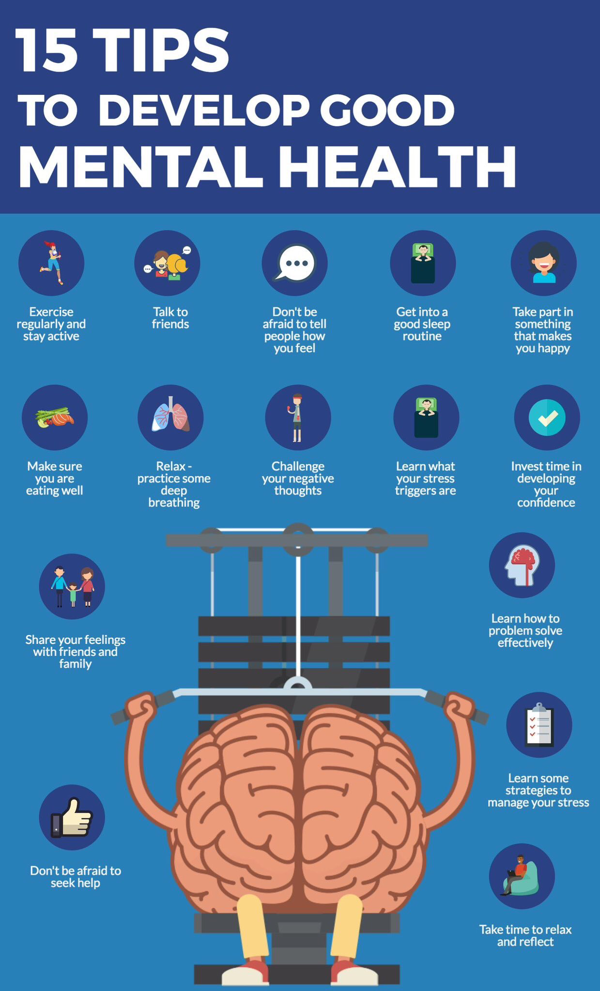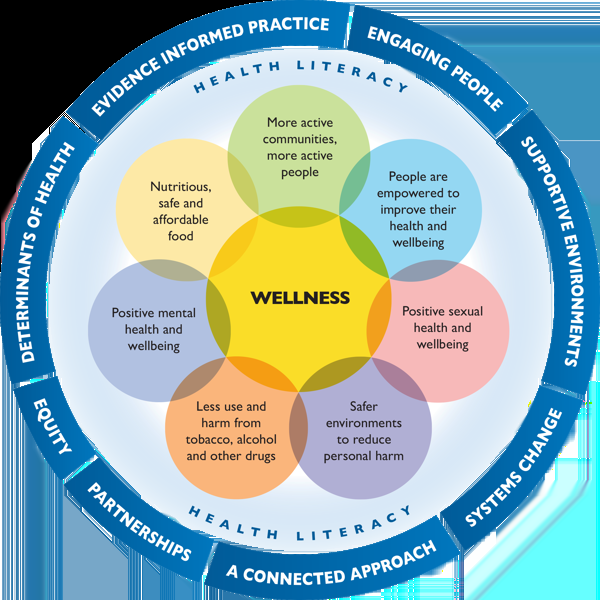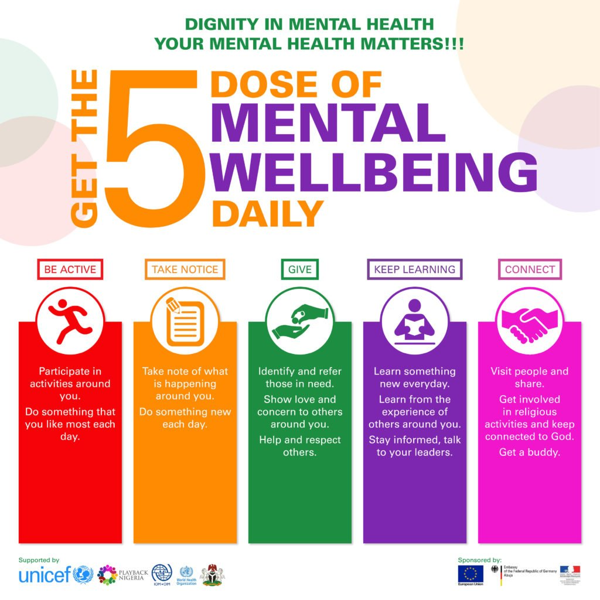Table of Contents
- Regular Exercise
- Healthy Diet and Nutrition
- Adequate Sleep and Rest
- Stress Management Techniques
- Positive Mindset and Emotional Wellbeing
- Building Strong Relationships
- Continual Learning and Personal Growth
1. Regular Exercise
Regular physical activity is vital for maintaining good health. Engaging in exercise improves cardiovascular health, enhances strength and flexibility, and promotes overall wellbeing. Incorporating activities such as jogging, swimming, or cycling into your routine can have long-lasting positive effects on your health.
2. Healthy Diet and Nutrition
Eating a balanced diet is essential for fueling your body with the necessary nutrients it needs to function optimally. Incorporate fruits, vegetables, whole grains, lean proteins, and healthy fats into your meals. Avoid processed foods and excessive sugar, as they can have negative impacts on your health.
1. Eat a Variety of Nutrient-Rich Foods
Consuming a diverse range of nutrient-rich foods is essential for maintaining good health. Include a combination of fruits, vegetables, whole grains, lean proteins, and healthy fats in your diet. This helps provide your body with a wide array of vitamins, minerals, and other essential nutrients necessary for optimal functioning.
2. Limit Processed Foods and Added Sugars
Avoid or minimize the consumption of processed foods and foods high in added sugars. These foods often lack nutritional value and can contribute to various health issues, such as obesity, diabetes, and heart disease. Instead, opt for whole, natural foods that are free from excessive processing and added sugars.
3. Stay Hydrated
Drinking an adequate amount of water is crucial for good health and wellbeing. It helps regulate body temperature, supports digestion, and flushes out toxins. Make sure to stay hydrated throughout the day by drinking water and consuming hydrating foods like fruits and vegetables.
4. Control Portion Sizes
Maintaining portion control is vital for a healthy diet. Be mindful of how much you eat and avoid oversized servings. Listen to your body's hunger and fullness cues to prevent overeating. This can help maintain a healthy weight and prevent overconsumption of calories.
5. Prioritize Balanced Meals
Aim to create balanced meals that include a combination of carbohydrates, proteins, and fats. Carbohydrates provide energy, while proteins support muscle growth and repair. Fats are essential for various bodily functions. By including all three macronutrients in your meals, you can promote overall wellbeing.
6. Limit Sodium and Saturated Fats
High sodium and saturated fat intake can contribute to heart disease and other health issues. Be mindful of your sodium intake and choose low-sodium options when available. Opt for healthier sources of fats, such as nuts, seeds, avocados, and olive oil, instead of saturated fats found in processed and fried foods.
7. Engage in Regular Physical Activity
A healthy diet is not complete without regular physical activity. Engaging in exercises or activities that you enjoy helps strengthen your muscles, improves cardiovascular health, and enhances overall wellbeing. Aim for at least 150 minutes of moderate-intensity aerobic activity or 75 minutes of vigorous-intensity activity per week.
8. Practice Mindful Eating
Mindful eating involves paying attention to your food, eating slowly, and savoring each bite. It helps you develop a healthier relationship with food and promotes better digestion. Avoid distractions while eating, such as watching TV or using electronic devices, as it can lead to overeating.
9. Get Sufficient Sleep
Adequate sleep is essential for overall health and wellbeing. It allows your body to repair and rejuvenate. Aim for 7-9 hours of quality sleep per night to promote optimal functioning of your body and mind.
10. Seek Professional Advice
If you have specific dietary requirements or health concerns, it is advisable to consult with a registered dietitian or healthcare professional. They can provide personalized guidance and advice tailored to your needs.

3. Adequate Sleep and Rest
Sleep plays a crucial role in maintaining good health and wellbeing. Aim for 7-9 hours of quality sleep each night to promote proper cognitive function, physical recovery, and emotional stability. Create a relaxing bedtime routine and ensure your sleep environment is comfortable and conducive to restful sleep.
Sleep plays a vital role in maintaining good health and overall wellbeing. Here are three ways to improve your sleep habits:
1. Stick to a consistent sleep schedule
Going to bed and waking up at the same time every day, even on weekends, helps regulate your body's internal clock. This consistency can improve the quality and duration of your sleep, making you feel more refreshed and energized throughout the day.
2. Create a bedtime routine
Establishing a relaxing routine before sleep can signal your body that it's time to unwind. Engage in activities such as reading, listening to soothing music, or taking a warm bath. Avoid stimulating activities or bright screens, as they can interfere with the production of sleep-inducing hormones.
3. Create a sleep-friendly environment
Ensure your sleeping environment is comfortable and conducive to rest. Keep the room cool, dark, and quiet, and invest in a good mattress and pillows that provide proper support. Consider using white noise machines, earplugs, or eye masks to minimize distractions that could disturb your sleep.
Remember, getting adequate sleep and rest is crucial for your physical health, mental wellbeing, and cognitive function. Prioritize a good night's sleep to enhance your overall quality of life.

4. Stress Management Techniques
Stress can negatively impact both your physical and mental health. Implement stress management techniques like mindfulness meditation, deep breathing exercises, or engaging in hobbies you enjoy. Find healthy ways to cope with stress, such as seeking support from loved ones or practicing yoga.
In today's fast-paced world, stress has become a common issue that affects both physical and mental health. Here are four effective stress management techniques to improve overall health and wellbeing:
- Exercise regularly: Engaging in physical activities such as jogging, cycling, or yoga can help release endorphins, also known as "feel-good" hormones. These hormones promote relaxation, reduce stress levels, and enhance overall wellbeing.
- Practice mindfulness: Taking a few moments each day to engage in mindfulness exercises, such as meditation or deep breathing, can help calm the mind and reduce stress. It allows you to focus on the present moment and let go of worries.
- Establish a healthy work-life balance: Creating boundaries between work and personal life is essential for reducing stress. Allocating time for relaxation, hobbies, and spending quality time with loved ones can help prevent burnout and maintain overall wellbeing.
- Seek social support: Sharing your feelings and experiences with trusted friends, family, or a support group can provide a sense of belonging and reduce stress. Building a strong support system can offer comfort and perspective during challenging times.
By incorporating these stress management techniques into your daily routine, you can promote good health, improve overall wellbeing, and lead a more balanced and fulfilling life.

5. Positive Mindset and Emotional Wellbeing
Cultivating a positive mindset is essential for overall wellbeing. Practice gratitude, engage in activities that bring you joy, and surround yourself with positive influences. Seek therapy or counseling if needed to address any underlying emotional challenges or improve your mental health.
1. Practice Gratitude
Adopting a grateful mindset can improve emotional wellbeing. Take time each day to appreciate the positive aspects of your life and express gratitude for them. This practice helps shift your focus from negative thoughts to positive ones, promoting overall wellbeing.
2. Engage in Regular Physical Exercise
Physical activity is not only crucial for maintaining good physical health but also for enhancing emotional wellbeing. Regular exercise releases endorphins, also known as "feel-good" hormones, which boost mood and reduce stress. Incorporate activities like walking, running, or yoga into your routine.
3. Build a Supportive Network
Strong relationships with friends, family, and a supportive community contribute to positive emotional wellbeing. Surround yourself with individuals who uplift and encourage you. Share your thoughts and feelings with trusted individuals, fostering a sense of belonging and support.
4. Practice Mindfulness and Meditation
Engaging in mindfulness exercises and meditation can significantly improve emotional wellbeing. Take a few moments each day to focus on your breath and be present in the moment. These practices help reduce stress, increase self-awareness, and promote positive thinking.
5. Prioritize Self-Care
Taking care of your physical, mental, and emotional needs is essential for good health and wellbeing. Set aside time each day to engage in activities that bring you joy and relaxation. This can include reading, listening to music, practicing a hobby, or indulging in a warm bath.

6. Building Strong Relationships
Establishing and maintaining strong relationships contributes significantly to your health and wellbeing. Spend quality time with loved ones, cultivate new friendships, and participate in community activities. Nurturing social connections provides support, reduces stress, and increases happiness.
In order to improve good health and overall wellbeing, building strong relationships with others plays a crucial role. Here are six ways to enhance your relationships:
1. Effective Communication
Good communication is the foundation of any strong relationship. It involves active listening, expressing yourself clearly, and respecting the thoughts and feelings of others. By effectively communicating, you can avoid misunderstandings and conflicts, thus promoting harmony and positive mental health.
2. Empathy and Understanding
Being empathetic means putting yourself in someone else's shoes and trying to understand their perspective. This helps foster compassion and build stronger connections. Understanding and acknowledging the feelings and experiences of others promotes trust and creates a supportive environment for both parties involved.
3. Spending Quality Time Together
To build strong relationships, it's important to dedicate quality time to one another. This could involve engaging in activities that both parties enjoy, such as going for walks, sharing meals, or participating in hobbies together. Spending time together strengthens the bond, improves emotional well-being, and fosters a sense of belonging.
4. Showing Appreciation and Gratitude
Expressing appreciation and gratitude for others can go a long way in building strong relationships. Acknowledge the efforts and qualities that you value in the person, and let them know that you are grateful to have them in your life. This reinforces positive feelings and fosters a deeper sense of connection and trust.
5. Resolving Conflicts in a Healthy Manner
Conflict is inevitable in any relationship, but how you handle it determines the strength of the relationship. Aim to resolve conflicts through open and respectful discussions, finding compromises and common ground. Avoiding hostility and finding solutions together helps build resilience and understanding, strengthening the bond.
6. Supporting Each Other's Wellbeing
A strong relationship involves supporting one another's wellbeing. Show care and concern for the physical, emotional, and mental health of the other person. Encourage healthy habits, offer support during difficult times, and celebrate successes together. By prioritizing each other's wellbeing, you strengthen the relationship and create a positive environment for personal growth.
In conclusion, building strong relationships is essential for good health and wellbeing. By focusing on effective communication, empathy, quality time, appreciation, conflict resolution, and mutual support, you can improve the overall quality of your relationships, benefiting both yourself and others.

7. Continual Learning and Personal Growth
Embrace lifelong learning and personal growth to enhance your overall wellbeing. Engage in activities that challenge your mind, such as reading, learning new skills, or pursuing hobbies. Strive for personal development and embrace new experiences that promote self-improvement and self-discovery.
In order to improve good health and overall wellbeing, continual learning and personal growth play a vital role. It is essential to keep acquiring knowledge and developing oneself in various aspects of life. Here are a few ways in which continual learning and personal growth contribute to maintaining good health and wellbeing:
- Mental Stimulation: Engaging in new activities, learning new skills, or pursuing higher education provides mental stimulation, keeping the mind active and sharp. This promotes overall cognitive health and reduces the risk of mental decline.
- Physical Health: Continually learning about different exercise techniques, nutritional values, and healthy lifestyle habits enables individuals to make informed choices for maintaining physical health. Regularly incorporating physical activity into daily routines positively impacts overall wellbeing.
- Emotional Wellbeing: By continuously learning about emotions, self-awareness, and self-management, individuals can enhance their emotional intelligence. This helps in managing stress, building resilience, and improving overall emotional wellbeing.
- Personal Relationships: Continual learning about effective communication, active listening, and conflict resolution skills aids in developing and nurturing healthy relationships. Good interpersonal connections positively influence mental and emotional health.
- Life Purpose and Meaning: Through continual learning and personal growth, individuals can explore and discover their passions, values, and purpose in life. This helps create a sense of fulfillment, satisfaction, and overall happiness, contributing to improved mental health.
- Self-Care and Stress Management: Continually learning about self-care practices, stress management techniques, and relaxation methods enables individuals to prioritize their own wellbeing. This leads to reduced stress levels and better overall health.
- Social Engagement: Continual learning through participation in social activities, joining clubs or organizations, or volunteering helps in establishing meaningful social connections. This combats loneliness, enhances self-esteem, and promotes mental and emotional health.
Embracing continual learning and personal growth in these various ways is crucial for maintaining good health and overall wellbeing. It empowers individuals to make positive choices, develop resilience, and lead a fulfilling and balanced life.

Key Takeaways
- Regular exercise is essential for good health and wellbeing.
- Eating a balanced diet provides necessary nutrients for optimal functioning.
- Adequate sleep supports cognitive function and physical recovery.
- Stress management techniques can minimize negative impacts on health.
- Cultivating a positive mindset promotes emotional wellbeing.
- Building strong relationships provides support and reduces stress.
- Continual learning and personal growth contribute to overall wellbeing.
Frequently Asked Questions (FAQ)
- Q: How often should I exercise?
- A: Aim for at least 150 minutes of moderate-intensity exercise or 75 minutes of vigorous exercise per week.
- Q: Are cheat days acceptable for a healthy diet?
- A: Occasional indulgences are fine, but it's essential to maintain balance and moderation in your overall diet.
- Q: Can lack of sleep affect my health?
- A: Yes, insufficient sleep can lead to various health problems such as weakened immune system and increased risk of chronic conditions.
- Q: How can I manage stress effectively?
- A: Find stress management techniques that work for you, such as exercise, meditation, or engaging in creative outlets.
- Q: Why are relationships important for wellbeing?
- A: Strong relationships provide emotional support, reduce feelings of loneliness, and promote overall happiness.
- Q: How can personal growth contribute to wellbeing?
- A: Continual learning and personal development enhance self-awareness, confidence, and overall satisfaction with life.



Recent Comments